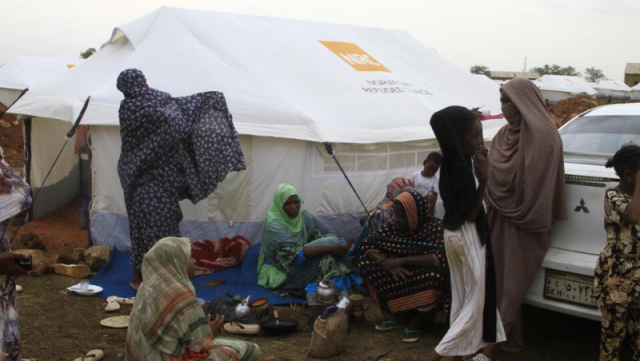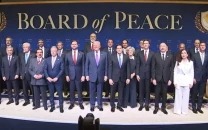Women, children make up one-third of wounded in Sudan conflict, MSF reports
The war between the regular army and the paramilitary Rapid Support Forces (RSF), caused serious human crisis

A third of those wounded in Sudan conflict are women or young children, MSF says
United Nations agencies and international aid groups must "come back and do more for the people of Sudan", the head of medical charity Doctors Without Borders (MSF) said on Tuesday.
MSF international president Christos Christou told AFP that after 15 months of brutal conflict in the northeast African country, nearly one in three wounded have been women or children under the age of 10.
The war erupted in April 2023 between the regular army and the paramilitary Rapid Support Forces (RSF), plunging Sudan into "one of the worst humanitarian crises in recent memory", according to the UN.
It caused the vast majority of aid operations in the country to shut down.
Many organisations chose "a conservative position, of waiting to see how the conflict will evolve", Christou told AFP in Port Sudan.
He spoke as talks between a UN envoy and delegations from both warring parties continued in Geneva.
Now, as famine has all but taken hold and the war shows no signs of stopping, "we ask that other organisations, and especially the UN agencies, come back and do more", he said.
Many groups report severe "financial challenges", the veteran medic said, a result of chronic underfunding of Sudan that UN humanitarian chief Martin Griffiths has called "historically shameful".
Read: UN scales up humanitarian aid to Sudan's Darfur, Khartoum
Sudanese first responders -- routinely targeted by both sides in the conflict -- say they have been abandoned, and humanitarian workers complain that operating has become all but impossible.
Both sides accused
Most aid groups have managed to send assistance only into the army-controlled east, and the UN has accused both sides of "systematic obstructions and deliberate denials" of humanitarian access.
"We keep experiencing looting, harassment of medical staff, and we have lost people," Christou said.
Since the war began, both the army and RSF have been accused of looting or obstructing aid, as well as all but destroying an already fragile healthcare system.
In the North Darfur state capital of El-Fasher alone, there have been at least nine attacks on MSF-supported facilities since May 10, when fierce fighting reignited in the city.
Across Sudan, medics have been threatened, patients killed and paediatric units bombed, in attacks that Christou said are often "intentional".
"Hospitals are sacred places, where people have the right to seek assistance and both patients and medical staff must be protected," he said.
The war has killed tens of thousands of people, but "every toll is an underestimate", Christou warned.
Most of those wounded in the fighting -- much of which takes place in densely populated urban areas -- cannot reach hospitals, more than 70 percent of which have been forced out of service.
Of those who do make it to MSF-supported hospitals, often the only facilities receiving patients, "almost one in every three people admitted with war-related injuries are women or children under 10", Christou said.
'This is our nightmare'
The two sides have been routinely accused of war crimes, including indiscriminately shelling residential areas and targeting civilians.
Sudan currently faces the world's biggest displacement crisis, according to the UN, with a record 10.5 million people internally displaced.
Most are now trying to survive in parts of Sudan that may be relatively safe from the fighting, but are at rapidly increasing risk of famine, the world body says.
More than half of Sudan's 48 million people face "acute food insecurity" set to worsen as the rainy season takes hold for the summer.
Aid groups have repeatedly warned that torrential rains and flooding will completely isolate entire regions from assistance.
"This is our nightmare," Christou said, adding that Sudan's regular pattern of "seasonal malnutrition" has given way to impending mass starvation.
A lack of access to data has prevented the official declaration of a famine, but MSF and other groups are observing rapidly "increasing trends of severe malnutrition" across Sudan.
In one North Darfur displacement camp alone -- Zamzam, which has more than 300,000 people -- 63,000 children "qualify as malnourished", 10 percent of whom are "severely, acutely malnourished", Christou said.
"This should worry all of us. It should tell us that we must respond collectively as the international community to prevent this from getting worse."



















COMMENTS
Comments are moderated and generally will be posted if they are on-topic and not abusive.
For more information, please see our Comments FAQ